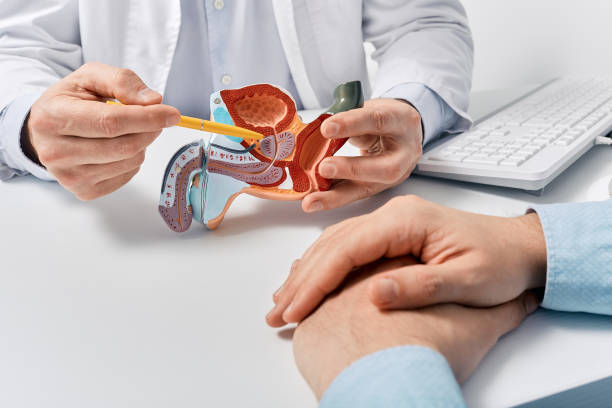Erectile dysfunction (ED) is a common issue that affects many men around the world. It can be a source of frustration, embarrassment, and stress. Understanding the symptoms, causes, diagnosis, and treatment options for ED can help men take control of their health and find effective solutions.
What is Erectile Dysfunction?
Erectile dysfunction is the inability to get or maintain an erection firm enough for sexual intercourse. It is sometimes called impotence. While occasional difficulty with erections is not uncommon, persistent ED is a condition that requires attention. ED can impact a man’s self-esteem and his relationship with his partner. It is important to recognize the signs and seek help if necessary.
Symptoms of Erectile Dysfunction
The main symptom of ED is the consistent trouble with getting or keeping an erection. This can include:
- Difficulty achieving an erection: Even with sexual arousal, the penis may not become erect.
- Difficulty maintaining an erection: An erection might start but fail to stay firm enough during sexual activity.
- Reduced sexual desire: ED can also cause a loss of interest in sex, which can further complicate relationships.
Causes of Erectile Dysfunction
There are many possible causes of erectile dysfunction, which can be divided into physical and psychological factors.
Physical Causes:
- Heart disease: Poor heart health can reduce blood flow to the penis, making it hard to achieve an erection.
- High blood pressure: This can damage blood vessels, including those that supply the penis.
- Diabetes: High blood sugar can lead to nerve and blood vessel damage, which can cause ED.
- Obesity: Excess weight can lead to conditions like diabetes and heart disease, which are linked to ED.
- High cholesterol: High levels can cause hardening of the arteries, restricting blood flow to the penis.
- Smoking and alcohol use: Both can damage blood vessels and reduce blood flow to the penis.
- Certain medications: Some drugs, especially those for high blood pressure, depression, or anxiety, can cause ED as a side effect.

Psychological Causes:
- Stress: Daily stress about work, money, or relationships can affect sexual performance.
- Anxiety: Worrying about sexual performance can lead to performance anxiety, making ED worse.
- Depression: This mental health condition can reduce sexual desire and lead to ED.
- Relationship problems: Conflict or lack of communication with a partner can contribute to ED.
Diagnosing Erectile Dysfunction
If you suspect you have ED, it is important to see a doctor. Diagnosis typically involves:
- Medical history: Your doctor will ask about your health, lifestyle, and any symptoms you are experiencing.
- Physical exam: This might include checking your blood pressure, penis, and testicles.
- Blood tests: These can check for conditions like diabetes, heart disease, and low testosterone levels.
- Urine tests: These can help identify any underlying health issues.
- Ultrasound: This test can check blood flow to the penis.
- Psychological exam: Your doctor might ask questions to see if mental health issues could be contributing to ED.
Treatment Options for Erectile Dysfunction
Fortunately, there are several effective treatments for erectile dysfunction. The right treatment for you will depend on the underlying cause.
- Lifestyle changes: Improving your overall health can improve ED. This includes exercising regularly, eating a healthy diet, losing weight, quitting smoking, and reducing alcohol consumption.
- Medications: Drugs like sildenafil (Viagra), tadalafil (Cialis), and vardenafil (Levitra) can help improve blood flow to the penis. These medications are taken before sexual activity and can help achieve an erection when aroused.
- Counseling: If psychological factors like stress, anxiety, or depression are contributing to ED, talking to a therapist can help. Therapy can also be beneficial for relationship issues.
- Vacuum erection devices: These devices create a vacuum around the penis, drawing blood into it and causing an erection. A ring is then placed at the base of the penis to maintain the erection.
- Surgery: In some cases, surgical options like penile implants or blood vessel surgery may be recommended. These are typically considered when other treatments have not been effective.
- Hormone therapy: If low testosterone is causing ED, hormone replacement therapy might be an option
Erectile dysfunction is a common issue, but it is treatable. Recognizing the symptoms, understanding the causes, and seeking a proper diagnosis are the first steps toward finding a solution. With the right treatment, many men can regain their sexual function and improve their quality of life. If you are experiencing ED, don’t hesitate to talk to your doctor. Help is available, and taking action can lead to significant improvements in both your physical and emotional well-being.
